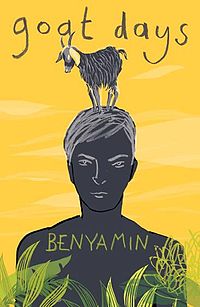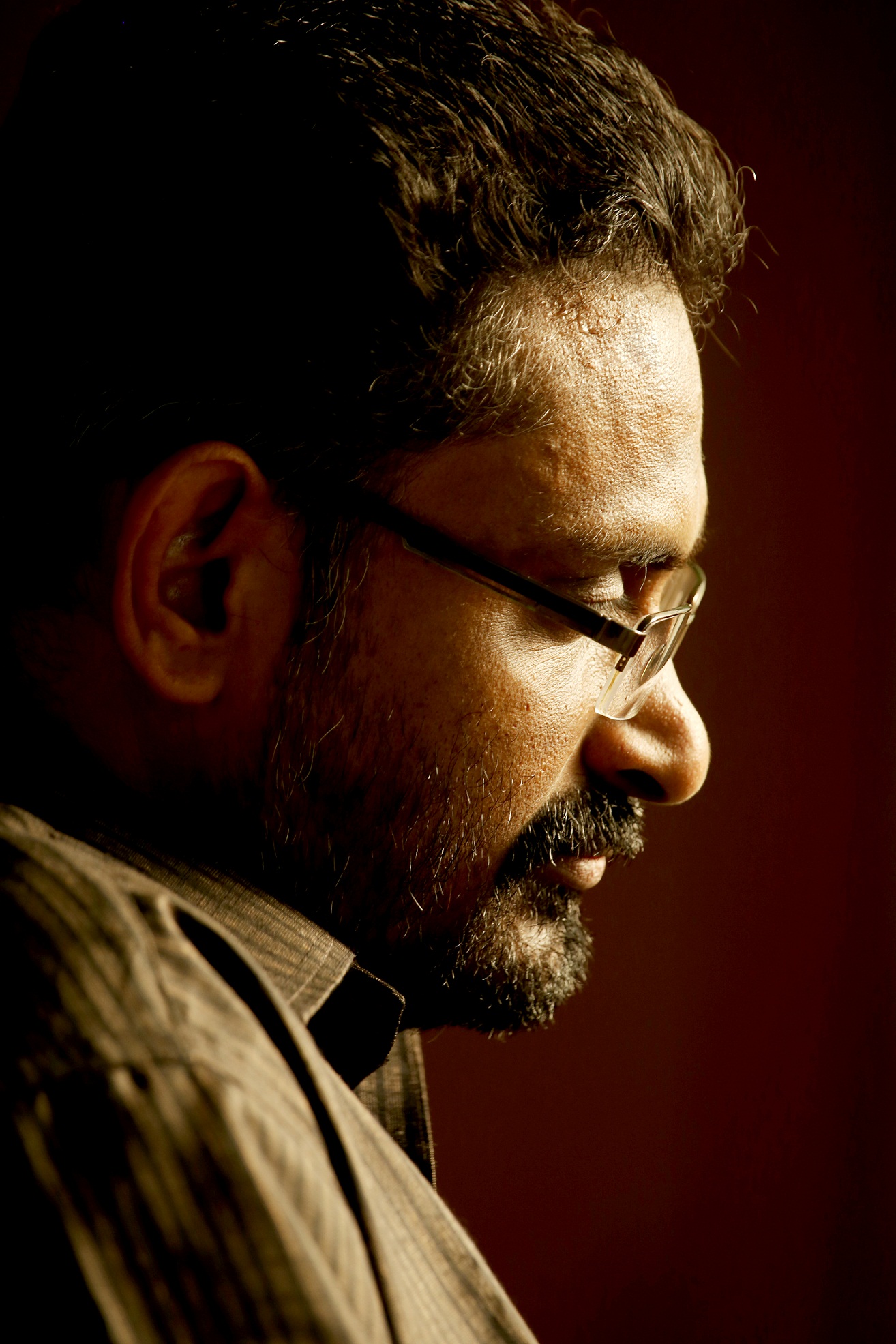The true-life story of an enslaved migrant is but one of the many untold stories, says author Benyamin, whose controversial and stirring book is banned in Saudi Arabia and UAE.
Every week there was an identification parade in the prison. It was the day for the Arabs to identify the absconding workers–a tear-filled day in prison. […] The first reaction of the Arab who recognised his worker was to land a slap that could pop an eardrum. Some even unbuckled their belts to whip the prisoners till their anger subsided. The policemen would keep an eye on the scene from a distance, and might not even pay attention. […] The prisoner’s face would reflect the abjection of a goat being led to slaughter.
Goat Days, by Benyamin
As fantastic as it sounds, this scene from Benyamin’s Goat Days is not fiction but a fitting summary of the life of migrant workers in the GCC. The complete and unquestioned power a kafeel has over ‘his’ worker and the lack of protections or rights for migrants is the source of mounting human rights violations in the region.

Benyamin’s novel recounts the life of Najeeb, a Keralite migrant in Saudi Arabia. First published in 2008 in Malayalam–Aatujeevitham–and translated into English in 2012. The book is banned in Saudi Arabia and UAE.
Migrant-Rights.org spoke with Benyamin, who now lives in Kerala. He was one of the millions who had migrated from the southern Indian state of Kerala to the Gulf. Benyamin first came to Bahrain in 1992, “In the early 90s, for an unemployed youth in Kerala there were no options or dreams other than the Gulf,” he says, and his situation was no different, though his passage was comparatively easier.
“Normally we have to cross many barriers like travel agencies, interviews, hidden fees, heavy commissions, NOCs, waiting for visas, and so on. But in my case, when I completed my technical education one of my cousins offered me a visa. I had no hesitation to accept it. I mean, I had no other option in front of me.”
We saw only the ‘show-offs’ of migrants when they came home for vacation. We considered that as reality.
The land of gold
When he first arrived, he had little or no awareness of the problems faced by migrants. The interesting dichotomy of the narrative still persists; while there is one that speaks of abuse, what eager migrants-to-be see or read is only of the land of gold and fortune. This is reflected in Benyamin’s first perception too.
“Absolutely blank..! At that time no one knew about the reality of migrant life. I think today as well. We saw only the ‘show-offs’ of migrants when they came home for vacation. We considered that as reality. But now we know the shoes, perfume, belt, sunglasses, cigarettes were all bought just the day before they boarded the flight. I realised that much later.”
And as that realisation grew and festered, Benyamin transformed it into literature. “I lived in the Gulf region for more than 20 years. Normally we hear (in Kerala) only the stories of success and the glitter of Gulf. But there was a compulsion in me to tell the tales of the many who lead a life of suffering and pain.”
Goat Days focuses on the animal-like suffering of Najeeb, who is forced to live in a remote farm in Saudi, amongst goats and camels, with no water for sanitation, and a strict ration of khubz and water.
In Goat Days the protagonist is so powerfully captured, one can smell the goats, the fear, and the desperation. The story is based on the account of a “hapless soul who had to undergo the cruelties of slavery in a country which was alien to him. For me it was really shocking to know that slavery is still in existence at certain areas.”
For me it was really shocking to know that slavery is still in existence at certain areas.
Modern day slavery
Benyamin reiterates that his is but one story. “There are so many ‘one column news items’ which we read regularly: ‘found a missing man in desert after a long period’ or ‘a man who forgot his language’ or ‘a man with undecipherable…’ The real human stories get buried.”
Which is why, when Benyamin heard the vague story of ‘Mr. Najeeb' from a friend, he decided to meet him. “At the beginning he was hesitated to tell about his past. He told me that it is an old story and he doesn’t remember it properly, but I persisted and met him many times and slowly he opened up and spoke about his life in the desert and what he went through. The purpose of my meetings at that time was not to write something. I just wanted to know his story out of curiosity. He spoke in such detail that it did something to me. I knew that it was an unusual story and was in no doubt that, this is the story I was waiting to tell the world and my conviction paid in full.”
So over a year and a half Benyamin and Najeeb met regularly for the full story to unfold.
Though the local media in Kerala has reported on abuse and exploitation for years, Gulf countries continue to attract large numbers of migrants and on this Benyamin feels the narrative of wealth overpowers the rest.
“I think most people think that the Gulf is a land of luck. They have some evidence with them, may be from their own villages. Even in the midst of many other honest stories, people still want to have a shot at it.”
Benyamin speaks of the invisibility of the millions both in their home countries and in the countries of destination.
They are seen as machines, not as human beings. To say they are the slaves of the modern era is not a wrong statement.
Invisible and unrecognised
“Their money is the backbone of economic growth of many nations. Their hard work is remarkable in the growth of migrant nations too. Still they don’t get enough attention or importance from any authorities. Nobody thinks about them. It is not the lack of laws and rules but the lack of implementation is the main issue.”
The problems he points out ranges from stagnant wages –“the living cost has increased but wages are stagnant since the 80s and 90s–to the many health problems (both mental and physical) that they face, but no attention is paid to.
“They are seen as machines, not as human beings. To say they are the slaves of the modern era is not a wrong statement.”
Though Benyamin’s own migrant experience has been a good one, as a writer he observes and imbibes other people’s experiences. “I merge those experiences with my ideas and give you a new vision. What I am trying to say is, what I write may not be my own experience, but I am there in each line.”
Benyamin has released two more books (in Malyalam) set in the Gulf, a twinset about the Arab world.
“Al Arabian Novel Factory and A Spring without Smell. It is a twin novel on the same subject with different perspectives. Both these books are banned in UAE. We can start with any book. But both are inter-linked many ways. That is the construction style of the books.
“These books are of sensitive nature as well, discussing the recent Arab spring, its reasons, aftereffects and most significantly political views, religious conflict and current affairs of the Arab society in oil age.”
Though Benyamin lived and worked in Bahrain, he has travelled widely in the region. Of Bahrain, his home for over two decades including during the peak of the unrest, he says, “compared to other nations in the region the unrest was not a sudden incident or a face book revolution. It was continuous for many years. There is a common feeling among the local people in the country that the presence of migrants is the main cause of many unsolved issues. If the migrants quit the country, they may get more attention. Migrants are grabbing their food and more importantly, they think the migrants create unbalance when it comes to religious equations. As we all know it’s a shia'a majority country. So certainly the migrants who were not were the main target.”
“After standing there for a long time, the abab tapped me on my shoulder once. Then, as if he didn’t recognize me, he moved on to the next one. […] ‘It’s just that he is not under my visa, otherwise I would have dragged him back to mascara!’ […] Wasn’t he my sponsor then? Had he illegally held me captive? On that day at the airport, had he kidnapped me? Was I brought on someone else’s visa? Then Allah… did you make me suffer someone else’s fate?”
— Goat Days, by Benyamin. Translated into English by Joseph Koyippally





